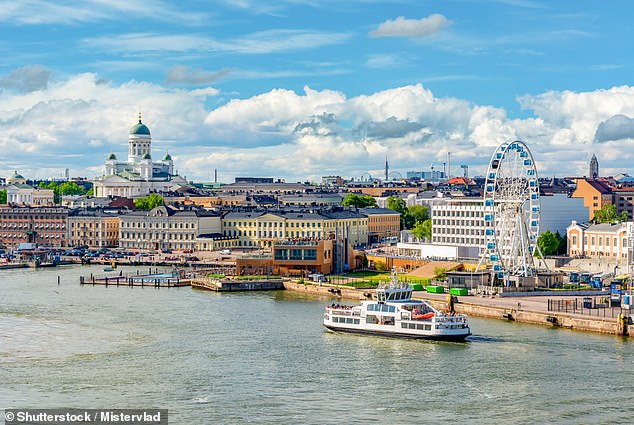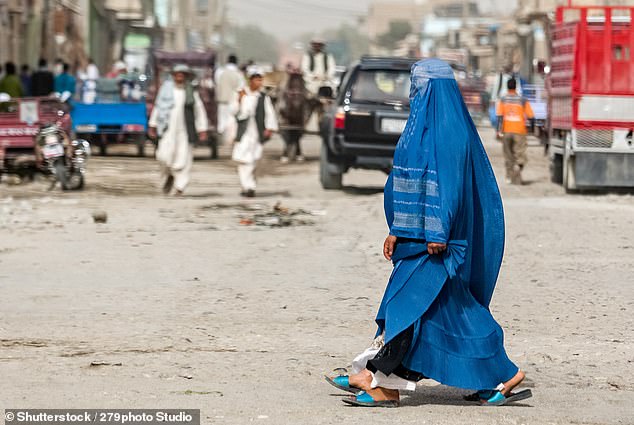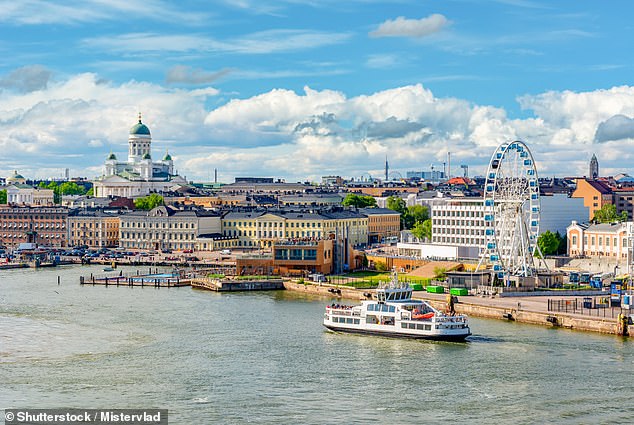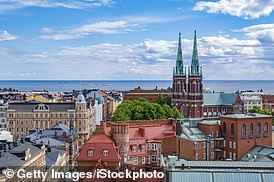Finland remains the happiest place on earth, but Britain and the United States have both become more miserable, according to a global study.
The Scandinavian nation, which has a population of 5.5 million, has now held this distinction for seven consecutive years.
Afghanistan, for its part, once again comes in last position in the World Happiness Report.
The United Kingdom and the United States have fallen in the 2024 world rankings of more than 140 countries.
Britain fell one place to 20th, below Lithuania and Czechia, while the United States fell eight places to 23rd.
Experts also said the data showed a worrying trend where young adults in Europe and North America are experiencing the equivalent of a “midlife crisis.”
Your browser does not support iframes.
This UN-sponsored report, now in its 12th year, draws on assessments of the happiness of tens of thousands of people, as well as economic and social data.
It gives a happiness score on a scale of zero to 10, based on an average score over a three-year period.
Finland scored 7.74 out of 10, while Afghanistan scored 1.72. For comparison, Britain’s was 6.72.
The United States’ score was slightly lower, seeing them fall out of the top 20. since the report began in 2012.
Analysts said this was mainly due to a decline in wellbeing among those under 30, with this year’s report the first to break down the results by age group.
The United States ranks 62nd in happiness among young people. Among the elderly – defined as people over 60 – it comes in 10th place.
It scored 42nd among young middle-aged people and 17th among older middle-aged people.

Finland has been named the happiest country in the world for the seventh year in a row, according to an annual ranking sponsored by the United Nations. In the photo: Helsinki


Afghanistan was the unhappiest country (score of 1.72) among the 143 countries included in the UN-backed survey. In the photo: Kabul
In comparison, Britain ranks 32nd for young people, 27th for young middle-aged people, 19th for old middle-aged people and 20th for old people.
Lithuania (19th overall) has the happiest young people in the world ranking, while older people in Denmark (2nd overall) were the happiest on the planet.
Across generations, analysts have found that people born before 1965 are generally happier than those born after 1980.
It has also been observed that the happiness of millennials is decreasing every year. In contrast, baby boomers’ life satisfaction increases with age.
Experts said the data also showed a worrying trend that young people in Western Europe and North America are experiencing the equivalent of a “mid-life crisis”.
Professor Jan-Emmanuel De Neve, an expert in economics and behavioral sciences at the University of Oxford and editor of the report, said: “By bringing together the available data on the well-being of children and adolescents in around the world, we have documented disconcerting declines, particularly in the North. America and Western Europe.
“The thought that, in some parts of the world, children are already experiencing the equivalent of a mid-life crisis demands immediate policy action.”
Eight of the ten happiest nations are in Europe, with Denmark in second place, with 7.58 points, roughly the same score as the Scandinavian country last year.
Iceland took third place. Sweden, Israel, the Netherlands, Norway, Luxembourg, Switzerland and Australia complete the top ten.
Afghanistan and Lebanon, scarred by war, remain the two unhappiest countries in the world, with respective scores of 1.72 and 2.70.
The third most unhappy country was landlocked African country Lesotho, with a score of 3.18.
Other significant changes include Costa Rica returning to the top 20 after a three-year gap and Germany, like the United States, leaving the list of happiest nations for the first time.
This year’s report is the first since the conflict between Israel and Hamas began in 2023.
Israel (5th) scored 7.34, well above Palestine (103rd) which scored around 4.88.
Both countries have seen declines in global happiness rankings.
This is also the second year of data collection following Vladimir Putin’s invasion of Ukraine.
Russia now ranks 72nd in the world rankings (5.78), up from 70th the previous year.
Meanwhile, Ukraine ranks 105th with 4.87, up from 92nd the previous year.
The report is based on self-reported data from respondents in each country.
Participants are asked to rate their life out of 10, and then an average score for the country is calculated based on the ratings received over the past three years.


